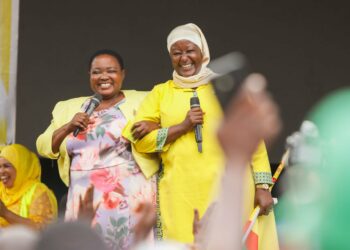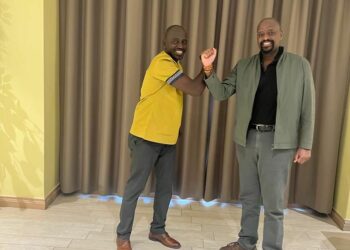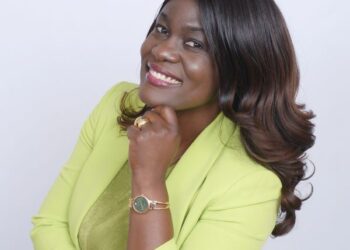By Prof Venansius Baryamureeba
We all remember the popular NRM 10-point programme of 1986 and specifically No. 3, which was on ‘’Consolidation of National Unity and elimination of all forms of sectarianism’’. It is an embarrassment for a Head of State of any country to use interpreters to communicate to more than 50% of the population due to language barriers. A Head of State should be able to address the Nation in a National Language. A National language is an instrument of national identity, eases communication across the nation, improves security surveillance, minimises sectarian tendencies, enables service delivery, facilitates trade and enhances socio-economic development.
Uganda is a country heavily characterised by language and tribe divide. It has at least 56 tribes and 43 prescribed vernacular languages. One of the requirements for Ugandan citizenship is evidence that the applicant has adequate knowledge of English, Swahili or any of the prescribed vernacular languages.
A National Language represents the National Identity of a Country. So, by Uganda allowing a citizen to be identified by any of the more than 43 vernacular languages, literally makes it a country without unique identity. This is in sharp contrast with the developed nations. For instance, all US citizens speak English, all UK citizens speak English, all French citizens speak French and all Chinese citizens speak Chinese. Speaking a national language is a requirement for citizenship in these countries.
The East African Community (EAC) Motto is one people, one destiny. English and Kiswahili are the two official languages of the EAC and EAC directed Partner States to formulate National Kiswahili Language Policies and enhance the use of Kiswahili in official domains as well as initiate the process of institutionalization of Kiswahili as one of the EAC Official Languages through the establishment of National Kiswahili Councils and National Kiswahili Associations. When shall all Ugandans be required to speak Kiswahili? If EAC is to realise political integration then Kiswahili should be the national language of EAC Federal State and thus all countries making up EAC should have Kiswahili as a national language.
Even when God was creating the human race, the issue of language featured prominently. In Genesis 11: 1 we learn that the whole world had one language and a common speech. But when the people resolved to come together and build themselves a city, with a tower that could reach to the heavens, so that they would make a name for themselves and avoid being scattered over the face of the whole earth, the Lord could not allow it as he wanted to divide them and scatter them over the face of the whole earth, Genesis 11:4.
Thus, in Genesis 11: 5-9 the bible says that: ‘’But the Lord came down to see the city and the tower the people were building. The Lord said, if as one people speaking the same language they have begun to do this, then nothing they plan to do will be impossible for them. Come, let us go down and confuse their language so they will not understand each other. So, the Lord scattered them from there over all the earth, and they stopped building the city. That is why it was called Babel—because there the Lord confused the language of the whole world. From there the Lord scattered them over the face of the whole earth.’’
Uganda that has been at forefront of EAC integration is still more of a tribal nation. Ugandans should be East Africans first and Ugandans second. Ugandans wanting tribal interests to take precedence over national and regional interests will not take us far. It’s high time nationalism and regionalism took precedence over tribal interests. Uganda should make it a constitutional requirement for every Ugandan citizen to be fluent in Kiswahili.
Since the people of East Africa comprise mainly of the Bantu, Nilotics, Hamites and Cushite ethnic groups we need to start sharing surnames across the ethnic groups in EAC. For instance, as part of promoting patriotism and nationalism in Uganda, the government should come up with a national programme under the ministry responsible for culture to financially reward parents who give surnames from other tribes to their children.
We need to see a kid born of Banyankore parents being named Okello, Okurut, Odongo, Ocheng, Odour, Onyango etc.; a kid born of Luo parents being named Mukasa, Sserwadda, Ntale, Ssebuwufu, Ssekibuule, Kitowoolo, Kisekka, Luwaga, Lubuulwa, Mululu, Ssembwa, Kasalirwe etc.; or a kid born of Baganda parents being named Mugisha, Karamagi, Kaboyo, Kyaligonza, Mbabazi, Bitamale, Okello, Odongo etc. We all still recall the Kayunga riots of 11 September 2019 that led some youth from Buganda to stage roadblocks that targeted anybody who could not speak Luganda fluently.
Next time there is an uprising, a section of Ugandans will be asking for names on the National Identity Cards and we need to move beyond this level of sectarianism. National naming is not new; for instance, all Chinese citizens have Chinese names. In the western world, most people of African descent don’t use African names. For example, in the U.S., they use names such as Julie Roberts, Joe Louis, Serena Williams, Vanessa Williams, Langston Hughes, William Edward Burghardt, Halle Berry, Tyra Banks, Harriet Tubman etc. These are typical American names that you find with white Americans too.
Also as Ugandans, we need to be aware of the continental and global trends. If we don’t address the language barriers how shall we benefit from African Continental Free Trade Area (AfCFTA) and other global markets? Article 11 of the Protocol on Amendments to the Constitutive Act of the African Union states the official languages of the Union and all its institutions shall be Arabic, English, French, Portuguese, Spanish, Kiswahili and any other African language. English is the official language of the Commonwealth of Nations and one of the official languages of the European Union, United Nations, and International Olympic Committee.
English is the official language of 59 sovereign countries, making it the most popular official language in the world. The second most popular official language in the world is French and it is designated as an official language of 29 countries. Arabic is the third most popular official language in the world and it is designated as an official language of 27 countries. The EU has 24 official languages, of which three (English, French and German) have the higher status of “procedural” languages of the European Commission.
Rwandans and Burundians are already fluent in French. Also of the estimated 174 million population of EAC, 47 million and 50 million respectively are Kenyan and Tanzanian nationals whose national language is Kiswahili. So, in order to effectively tap into regional, continental and global markets, EAC should consider having English, Swahili and French as Official languages and promote their teaching in all schools across EAC Partner States. This will enable EAC to exploit the language advantage in various economic blocs as a medium of communication, service delivery and economic development among others.
The author is a Former Presidential Candidate; barya@utamu.ac.cug
Do you have a story in your community or an opinion to share with us: Email us at editorial@watchdoguganda.com











